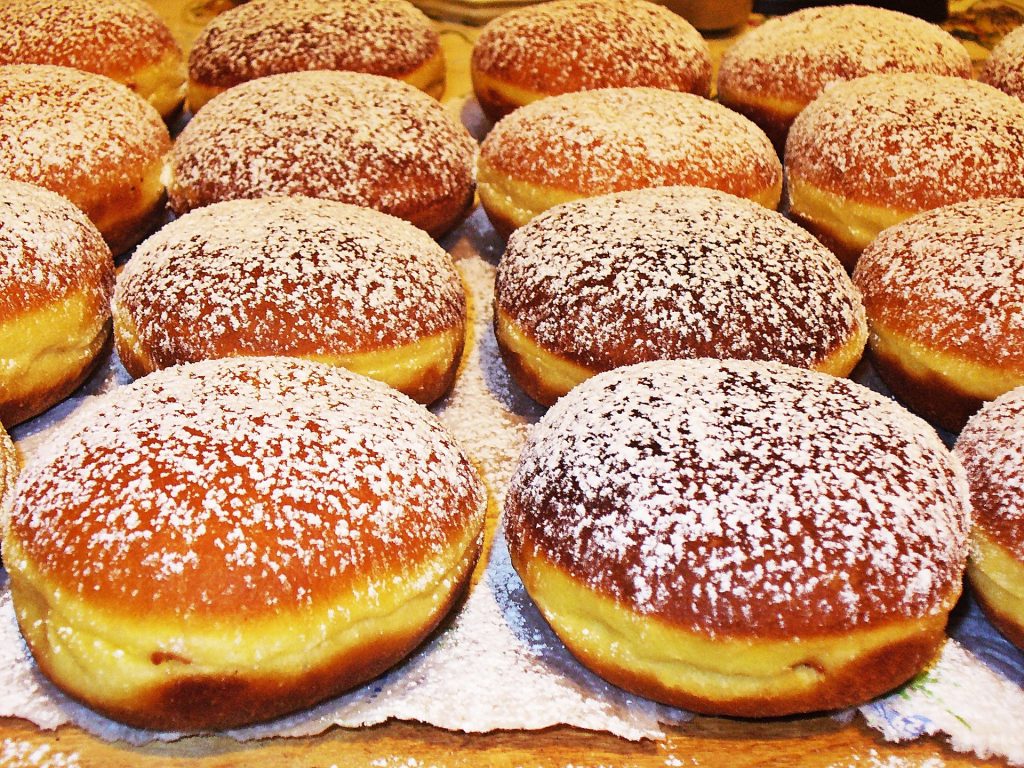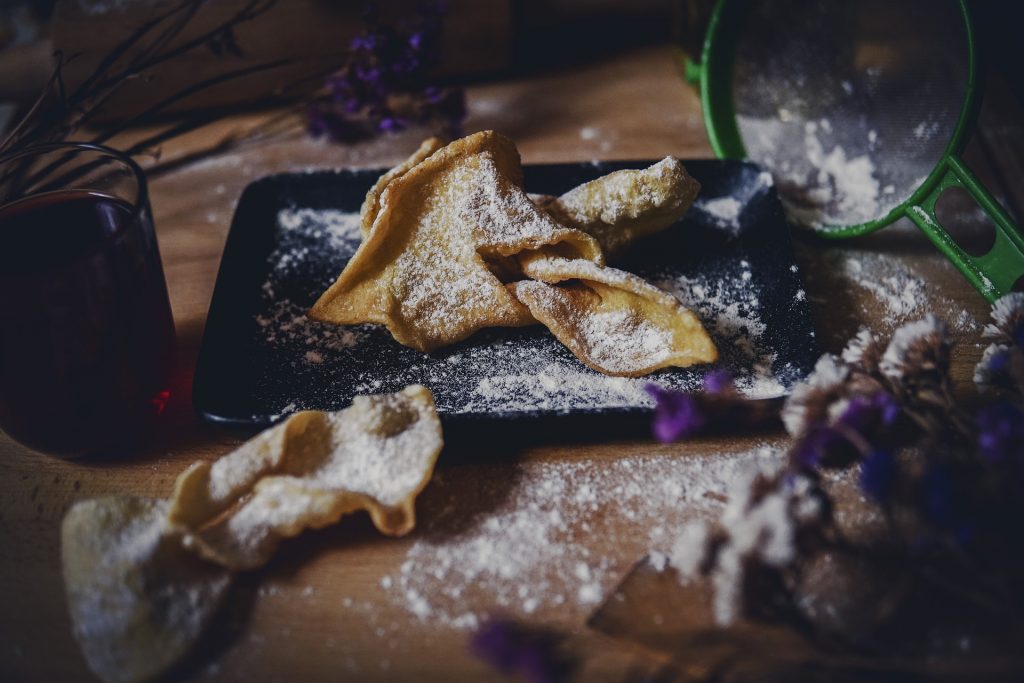Get ready for a sweet Polish feast! Posted by Kasia on Feb 27, 2019 in Culture, Current News
Two words: Fat Thursday (Tłusty Czwartek)! I’m sure most of you have already heard about it. Tomorrow it is that day of the year, when thousands of bakeries/coffee shops around Poland will be working intensively to satisfy the desire of millions of Poles that are willing to continue with this amazing Polish tradition of indulging in pączki and faworki!
Fat Thursday is celebrated once a year, on the last Thursday prior to Ash Wednesday and the beginning of Lent. This year, 2019, it will be celebrated tomorrow:)
This holiday mainly revolves around eating as many doughnuts as possible, all in the name of good luck. Statistically, every Pole eats two and a half doughnuts ‒ or pączki, in Polish ‒ on that day, which constitutes a whopping 100 million for the entire nation. You see lines in front of the best bakeries, most of the times very long ones!
Poland’s love affair with doughnuts dates back to the 16th century. Back then pączki were known as kreple (from German: Krapfen). In the 18th century historian Jędrzej Kitowicz, author of the fascinating treaty Description of Customs during the Reign of August III, described modern doughnuts eaten at the court as ‘fluffy and light’, comparing them to the old-fashioned ones which could give someone a black eye when thrown at their face, and therefore proving that whilst the tradition has lasted the recipe has still evolved.
Doughnuts are believed to bring happiness, and refusing to eat them is considered not only rude, but also unlucky. This one proverb, for example, indicates that “those who don’t eat a stack of pączki on Fat Thursday will have an empty barn and their field destroyed by mice”.
Polish pastry chefs endeavour to cater even to vegan or gluten-intolerant doughnut-lovers. Even though the traditional recipe calls for lard, eggs, wheat flour, and loads of sugar, new variations are created for every possible dietary restriction. Fillings also vary: the traditional rose preserve can be replaced with vanilla custard or chocolate ganache. The only rule is to make them light and fluffy, which is only achieved when the yeast dough is properly aerated.
Growing up, I never really remember standing in lines and buying pączki on this day, however my mother would spend a lot of time making her own amazing doughnuts for us. Another very popular sweet treat for this day are faworki. She also made those herself!
Faworki ( (also known as Chrusty), which are thin dough ribbons, fried until crispy and sprinkled with powdered sugar. They are delicious!
I wish I was good at making these myself…however I might be better off getting some pączki at the local bakery tomorrow and continue the tradition ever far away from Poland:)

Build vocabulary, practice pronunciation, and more with Transparent Language Online. Available anytime, anywhere, on any device.






Comments:
Martha K:
I need to find a Polish bakery right away!!
Hanifa:
I’m looking for “Laura” who posted in June 2016..she was looking for info on Kapty, Kaptey or Kaptij . My maternal Grandfather was John Kaptey immigrating from Galicia in 1907..to Alberta Canada. My mom and I have been trying to locate her relatives for years..would love to connect with her, if possible.
Rom:
Thanks for everything. I want to subscribe to your ‘Word of the day’. I don’t see the location for it.
Please show me.
Regards
RW.